Results
-
 £126.50
£126.50Slava! - Wind Band - Leonard Bernstein
The first theme of Slava! is a vaudevillian razz-ma-tazz tune filled with side-slipping modulations and sliding trombones. The second theme is a canon, and after a brief development section, the two themes recur in reverse order. Near the end, they are combined with a quotation (proclaimed by the ubiquitous trombones) from the Coronation Scene of Moussorgsky's 'Boris Goudonov', where the chorus sings the Russian word slava!, meaning, glory! In this way, the composer is paying homage to his friend Mistislav Rostropovich, called 'Slava' by his friends and to whom the overture is fondly dedicated. The overture was written to celebrateRostropovich's inauguration as music director of the National Symphony Orchestra in Washington, D.C., in 1977. Leonard Bernstein, the son of a Russian immigrant, was born near Boston, Mass., and studied composition at Harvard. Called 'an authentic American hero, an arts hero,' Bernstein had a distinguished career as composer and conductor. - James Huff
Estimated dispatch 7-14 working days
-
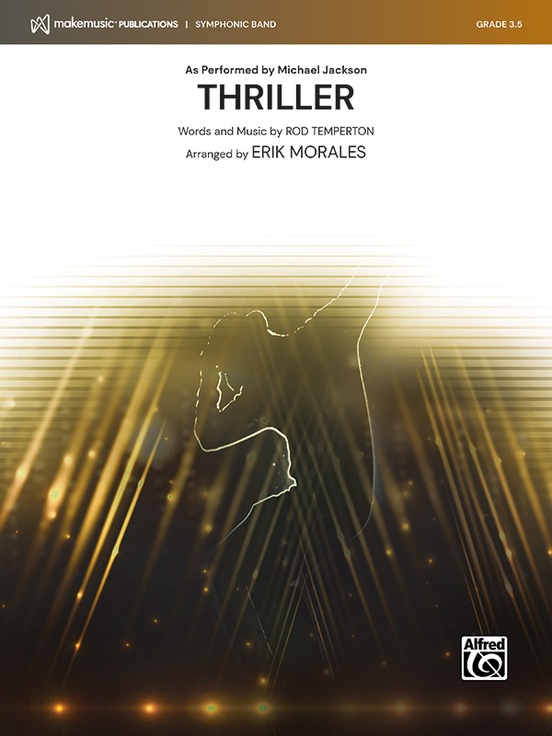 £85.00
£85.00Thriller (Concert Band - Score and Parts) - Temperton, Rod - Morales, Erik
Don't miss out on this perfect showstopper for your fall concert or any time of year! Michael Jackson's Thriller remains one of the most popular hits of all time, and this iconic band arrangement by Erik Morales captures the smash hit in all its glory. In addition to drum set, optional narration, electric bass, and synth keyboard bring the music to life. Flash mobs are encouraged!Duration: 4.00
Estimated dispatch 7-14 working days
-
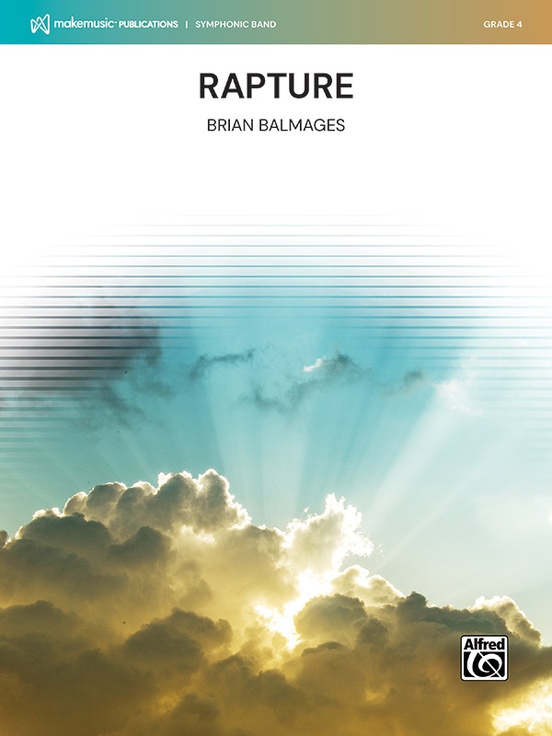 £110.00
£110.00Rapture (Concert Band - Score and Parts) - Balmages, Brian
Make a powerful statement with this intense yet introspective work. The opening exclamation by percussion becomes a fixture throughout, supported by epic brass lines and energetic woodwind flourishes. Inspired by the hymn "Lo! He Comes with Clouds Descending", the music contrasts themes of pure joy and euphoria with intense reflection and peace. Covering the gamut of emotions, Rapture, by Brian Balmages, is as intense in its lyrical moments as in the height of its rapturous glory.Duration: 8.30
Estimated dispatch 7-14 working days
-
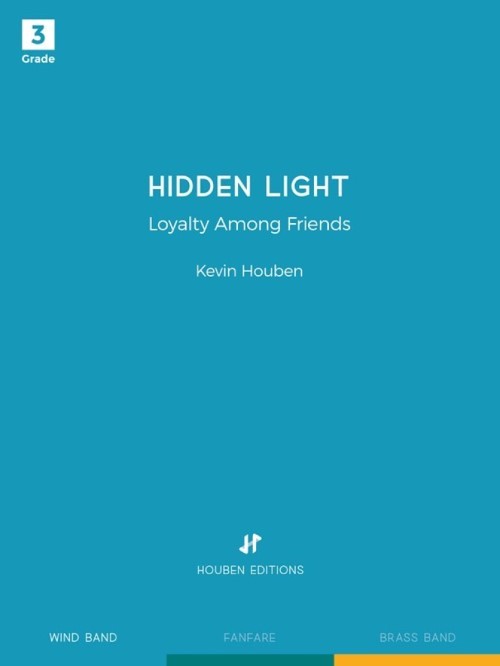 £99.99
£99.99Hidden Light (Loyalty Among Friends) (Concert Band - Score and Parts) - Houben, Kevin
Hidden Light (Loyalty Among Friends), was composed on the occasion of the 75 year membership of Mr Leo Knoben at the Royal Brass Band 'Eendracht Waubach'(NL). From pride and admiration for this exceptional jubilee , but also out of gratitude for his many years of commitment as musician and member of the board, the association chose to have a memorable work written. That assignment resulted in the wonderful choral Hidden Light, for which composer Kevin Houben based himself on the following emotions and oppositions: small vs majestic, submissive vs royal and simplicity vs glory. The work starts in a very modest, dark atmosphere, after which the composition develops into a grand and lofty sound with broad melodies, exploring the full richness and colors of the 'symphonic' wind band. The interesting variety in orchestration - the small, intimate setting at the beginning and the following broad, majestic tutti passages - makes the work very varied, grateful to perform and to listen to. With Hidden Light Kevin Houben has again created an expressive and powerful composition that is highly reflective in nature. This emotional work is a tribute to an exceptional man who has been there for 'his' orchestra all his life, with a warm heart for 'his' musicians. Each musician will recognise the connection and the passion for music in this piece. Duration: 5.30
Estimated dispatch 7-14 working days
-
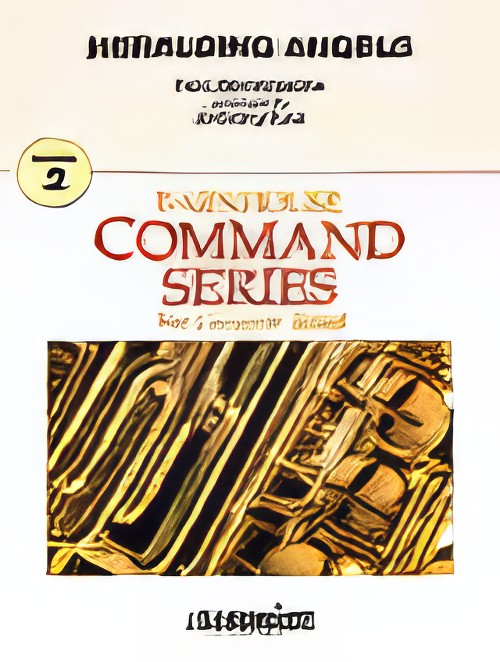 £59.00
£59.00Heralding Angels (Concert Band - Score and Parts) - Mendelssohn, Felix - Susi, Anthony
Heralding Angels is a regal presentation of the traditional holiday favorite by Felix Mendelssohn capturing the glory of the text with fanfares, trills and carefully crafted flourishes! The trumpet descant and percussion add to the majesty of this classic holiday work. With moderate ranges, ample doubling of parts, limited independence, and 2nd clarinet below the break, this well-known piece is accessible to many bands. A great choice to introduce and reinforce a variety of eighth and sixteenth note rhythmic combinations. Sure to be a favorite at the annual winter concert! Duration: 2.45
Estimated dispatch 7-14 working days
-
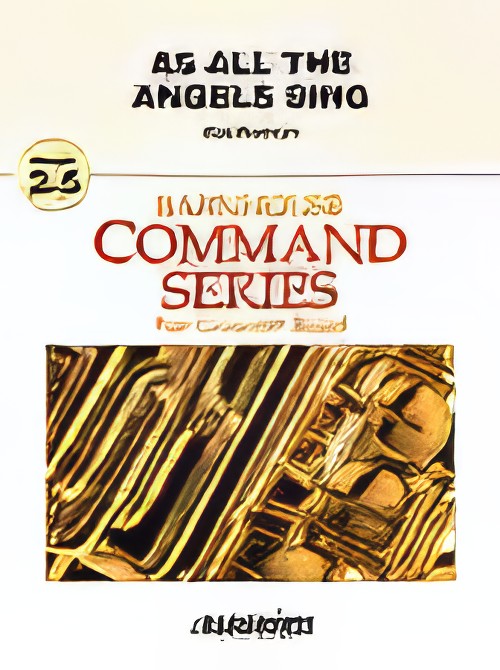 £59.00
£59.00As All the Angels Sing (Concert Band - Score and Parts) - Romeyn, Rob
Based on the traditional carol "Angels From The Realms of Glory," "As All The Angels Sing" is the perfect opening or closing statement for your holiday concert! The sparkling introductory theme is creatively enhanced by snippets of other festive, well known carols, leading to a heartfelt setting of "Still, Still, Still" that is simply beautiful. The music then ends as it began, festive and strong. Varied instrumental colors and contrasting styles are musically rewarding, and will make this selection a favorite of bands from younger levels all the way up to adult community groups. Let the holiday season begin! Duration: 2.30
Estimated dispatch 7-14 working days
-
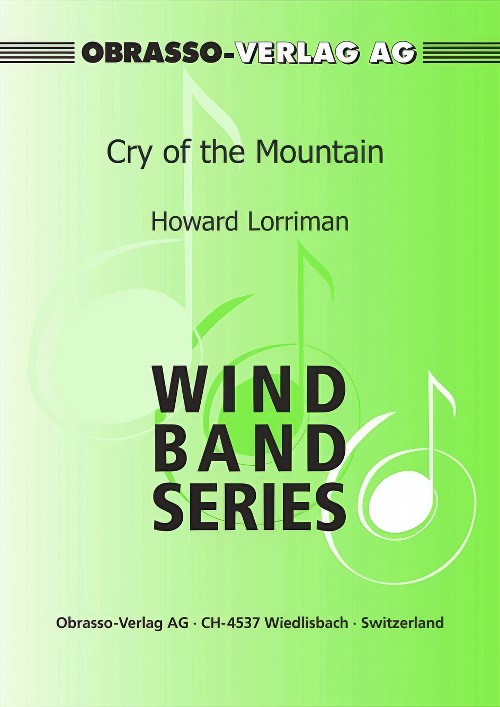 £125.30
£125.30Cry of the Mountain (Concert Band - Score and Parts) - Lorriman, Howard
This work is dedicated to Manfred Obrecht, conductor and musical editor. Manfred asked the composer to write a piece that captures the changing colours and mood of a mountain when viewed from a relatively close distance. The work is in four sections:Awakening - early morning and the mountain is covered in cloud, eventually the sun bursts through and reveals the mountain in all its glory.Snow, Ice and Glaciers - between the rocky out-crops ther are layers of snow; slippery ice patches and icicles adorn the overhangs. In the larger crevices and valleys glaciers are formed.Vistas and Distant Peaks - when viewed from other high points one can see the mountain in full outline against the vast landscape.Avalanche - despite its beauty, a mountain can be a dangerous place and the accumulated snow may not be stable, it can easily tumble out of control. The slight twist of major tonalities at the very end reflects the way a sudden change in light can alter the whole perspective.
Estimated dispatch 7-14 working days
-
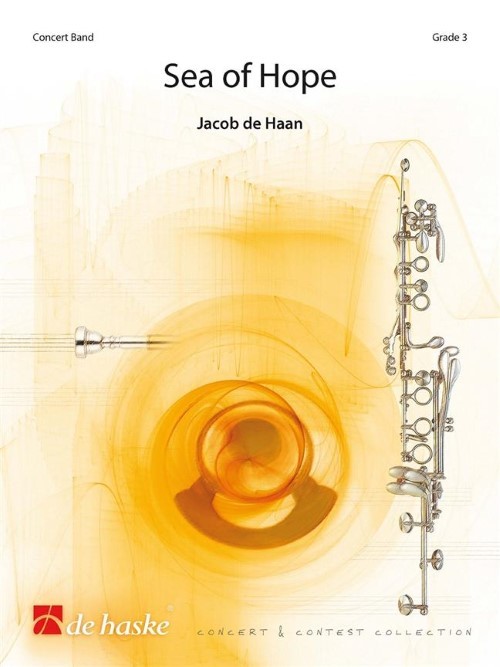 £119.99
£119.99Sea of Hope (Concert Band - Score and Parts) - De Haan, Jacob
Sea of Hope is an optimistic work about new land arisen from the former Zuiderzee (the Netherlands). In the introduction, the sea is conveyed in all its glory and ferocity, through a melody that keeps you wondering whether it makes you happy or sad. Then, finally, there is a glimmer of hope, when the water is dammed up and the land partly reclaimed (by conversion into polder land). The town of Dronten, for instance, develops into a place where one day two people meet up and fall in love. This love is reflected in the slow, passionate middle movement. New life in the town is celebrated joyfully: the zest for life clearly shines through this part of the work, followed by optimism and celebration in the closing bars.Duration: 8.30
Estimated dispatch 7-14 working days
-
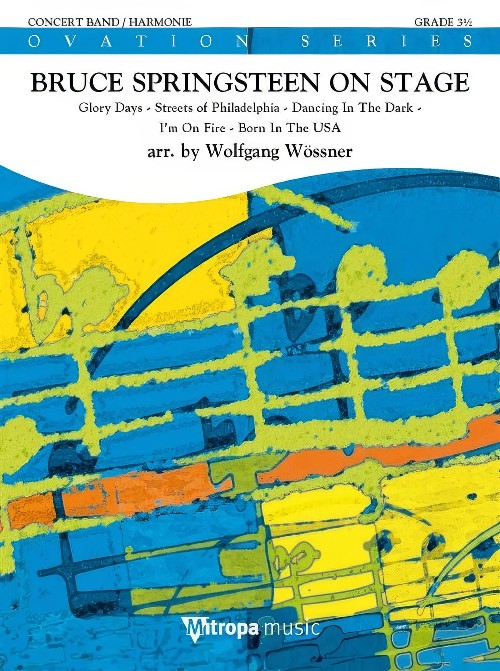 £119.99
£119.99Bruce Springsteen on Stage (Concert Band - Score and Parts) - Springsteen, Bruce - Wossner, Wolfgang
If you think of Bruce Springsteen, you immediately start singing his greatest hits! This is a Grade 3 medley by the top German arranger Wolfgang Wossner featuring some of those classic songs, including:Glory DaysStreets of PhiladelphiaDancing in the DarkI'm on FireBorn in the USADuration: 8.00
Estimated dispatch 7-14 working days
-
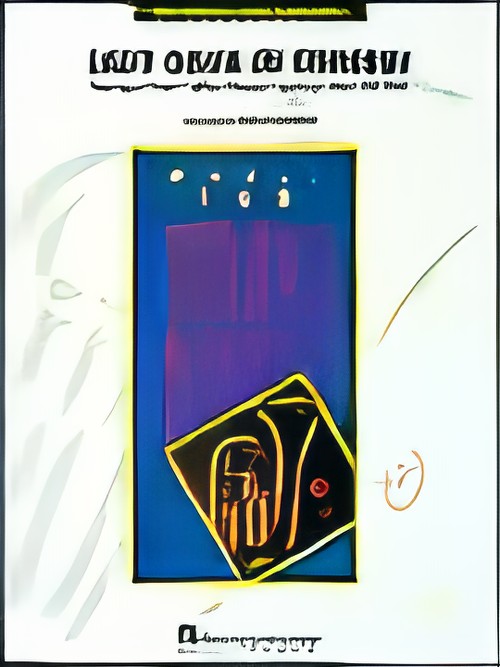 £64.99
£64.99Lady Gaga in Concert (Concert Band - Score and Parts) - O'Loughlin, Sean
Lady Gaga continues her reign of popularity with stunning performances and a parade of well crafted hits. Here is a terrific medley of familiar songs including The Edge of Glory, Million Reasons, Born This Way, and Applause.
Estimated dispatch 7-14 working days
